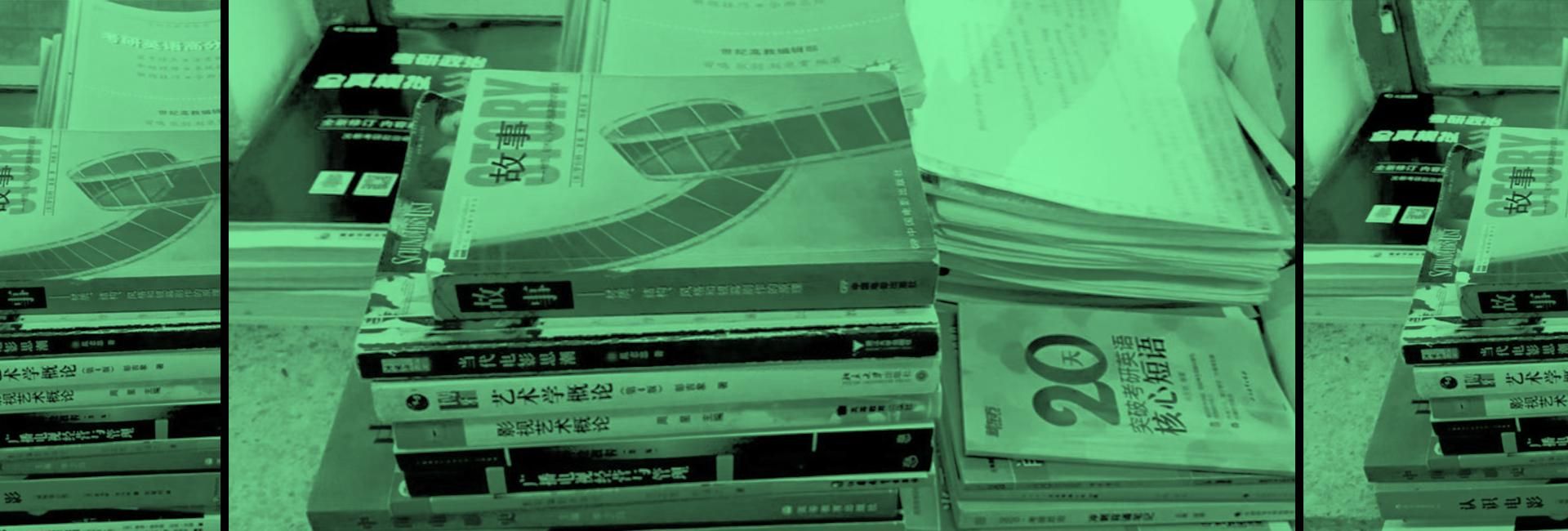In December, more than 5 million students will sit the annual post-graduate entrance exam, 4 million will 'fail'.
For three years, all Ziwei Wang did was try, fail, try again, fail, try again and fail. "If you ask me why I'm obsessed, I'm at a loss for words. I just feel the Master's degree can give me more options," said Wang, 26, who has taken China’s fiercely competitive post-graduate entrance exam three times.
He is not alone in his obsession, interest in taking the exams has never been higher. Last year, 4.57 million young Chinese applicants sat for the national postgraduate entrance examination in late December, an increase of 800,000 from the previous year, according to China's Ministry of Education.
Due to the general difficult employment market under China’s zero COVID-19 policy, students who might have settled for a Bachelor’s degree have now joined the army of postgraduate entrance exam hopefuls. Chen Zhiwen, editor-in-chief of the online education portal EOL, told China Daily that many Chinese firms have made a Master's degree a minimum requirement for employing staff.
'If you ask me why I'm obsessed, I'm at a loss for words. I just feel [it] can give me more options.'
The result has been that the postgraduate admission examination has become a second gaokao. (The gaokao is China’s national college entrance exam for a Bachelor degree study program.) The postgrad exam is broken into two parts, with a maximum 500 marks awarded. The written exam every December is followed by an interview exam by individual universities in March for the highest performers in the written exam. (The university school year starts in September.)
Students hoping to do post-graduate study must meet a “national admission line”, set by the Ministry of Education, of up to 348 marks, but with the increased interest, the most desirable universities are cutting off entrance well above that line. Once, 380 was considered a solid score for admission, now many candidates with 400 are being turned away.
Four years ago, Wang, then a 23-year-old university senior, decided to take the postgraduate admission test to avoid having to return to his hometown. He saw a Master's degree as his "ticket" to stay in Beijing. Over the course of three years and three exam cycles, Wang shifted his expectations from winning a place at Beijing Normal University, one of China’s top public universities, to the faraway Northwestern University, but he still didn’t progress to the interview stage of the exam. However, each time, he reached the national admission line score.
In 2016, 1.77 million students took the postgraduate entrance exam. Four years later, that number had nearly doubled to 3.41 million, but admission only increased by 400,000 to 990,500 places, cutting out more than 2.4 million candidates.
For more than 2.4 million rejected exam sitters, failing to get into graduate school often means falling behind their peers. In taking the time to study for the exam, they have lost their new graduate status, making Bachelor-degree level entry into large corporations harder.
"Age anxiety is given by people around you," Wang explained. Four years after graduating from his undergraduate program, but failing to be accepted into a graduate program, Wang saw his friends moving on more quickly than him. He finally looked for another way out. Six months ago, he took a job in Beijing, filming short movies for a private firm and he's thinking about doing a postgraduate degree part-time.
If rejection is the norm for candidates who just meet the national admission line, failure for higher-scoring candidates such as Qiurong Yang is more confronting.
"I was surprised when I saw the 388 points. I thought I had answered the questions poorly, so wasn't expecting such a good score," said Yang, who was taking the exam for the second time. She applied to Zhejiang University's screenwriting-director program with a score that was 40 points higher than the national admission line score. Her excitement faded however when she noticed candidates with 400 points all over social media.
Yang cannot understand why the exam has become so much more involuted, resulting in a fall in each student's "effort-to-reward" ratio. "Ten years ago, 320 points could also get into first-tier colleges," Yang added.
This year, the lowest written test admission score for Zhejiang University's screenwriting-director program was around 395 points, seven points higher than Yang's score. With the dream of studying at a top university broken, Yang attempted to adjust to an ordinary university. "At that time, I thought at least I could get into the second round of interviews with such a high score!" Once again, reality crushed her, she was eliminated in the written exam round.
It's a common experience for many students, who go from the excitement of checking their scores to the despair of discovering higher scores all over social media. They study hard to achieve the "top score" of past years and succeed. However, the definition of "top score" is constantly being upgraded, everyone is stronger and faster than last year.
Like Wang, Yang has abandoned her original plan, (she had hoped study for a PhD and eventually teaching at a university), and has instead joined a company's copywriting department. "What I'm feeling so far is okay, since employment in my field does depend more on practical skills,” Yang said.
The stories of rejection have not dampened demand for the exam. Registrations have now opened for the 2023 exam and more than 5.2 million are expected sit the post-graduate entrance exam on December 25 and 26. Only around 1.3 million will be admitted, leaving close to 4 million to decide whether they should change direction, or like Wang, try, try again.
Tina is studying for a Master's in Journalism and Communication at UNSW Sydney. She is very interested in traditional Chinese heritage and documentaries; she loves to tell the stories of ordinary people through her writing.






